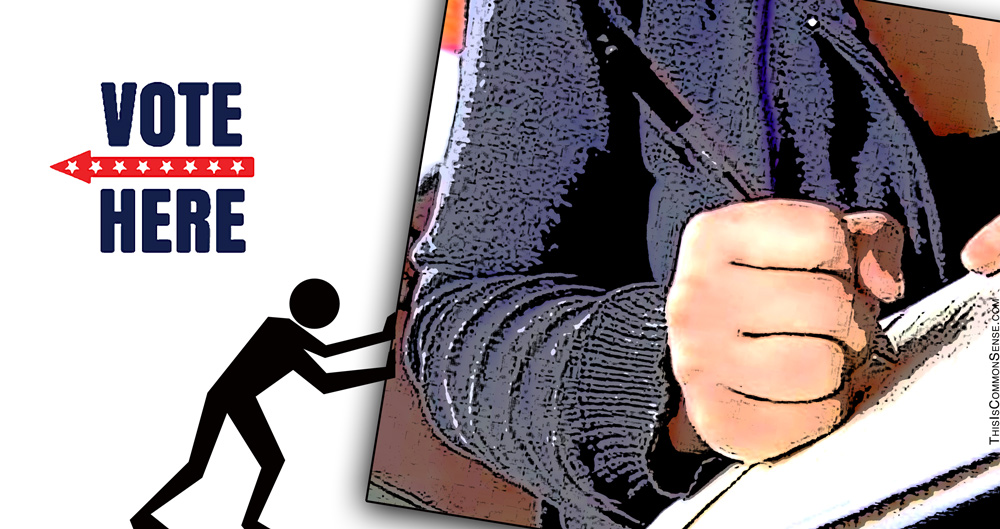Quick — what is the very first thing government should do this year?
Maine’s Secretary of State Matthew Dunlap has urgent legislation. And just so you don’t get the wrong idea, “It’s really not a shadow effort to restrict the people’s right to petition their government,” he insists. “That is not our intent.”
Got that?
Citing voter and election official complaints — without documenting any specific person or incident — the secretary seeks to “virtually ban” signature gathering at the polls on Election Day. His special bill, L.D. 1726, would create a 50-foot buffer so that voters can get to the polls, cast their ballots, and rush back home without ever being approached by fellow citizens seeking their signatures to place an issue on the ballot.
Polling places, Dunlap thinks, should be more “civilized.”
“State lawmakers in recent years have lamented the number of citizen-initiated bills that have been approved by voters,” explained the Portland Press Herald, “including major changes to marijuana law, voting, taxation and the minimum wage in just the last two years alone.”
Legislators, apparently, do not like following laws enacted by voters.
It is interesting that the Ranked Choice Voting ballot initiative, which Mainers passed last November — and Dunlap strongly opposed — gathered tens of thousands of signatures at the polls. In a statement, that citizen committee declared, “Our constitutional right to direct democracy is under attack in Maine.”
Why would a Secretary of State so blatantly favor politicians over the people? In Maine, legislators choose the Secretary, not voters. It’s a bad system, lacking proper separation of powers.
Removed from the people.
This is Common Sense. I’m Paul Jacob.



